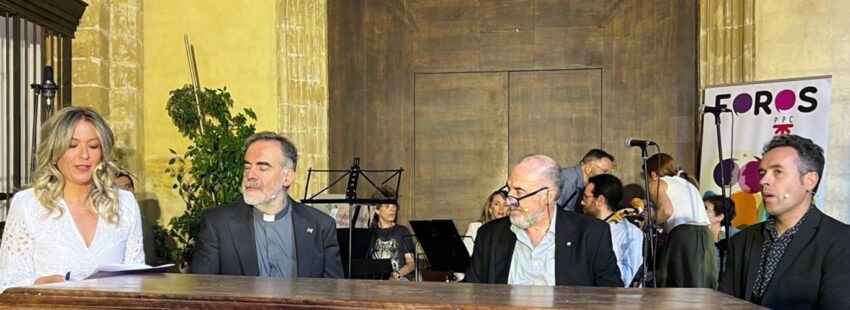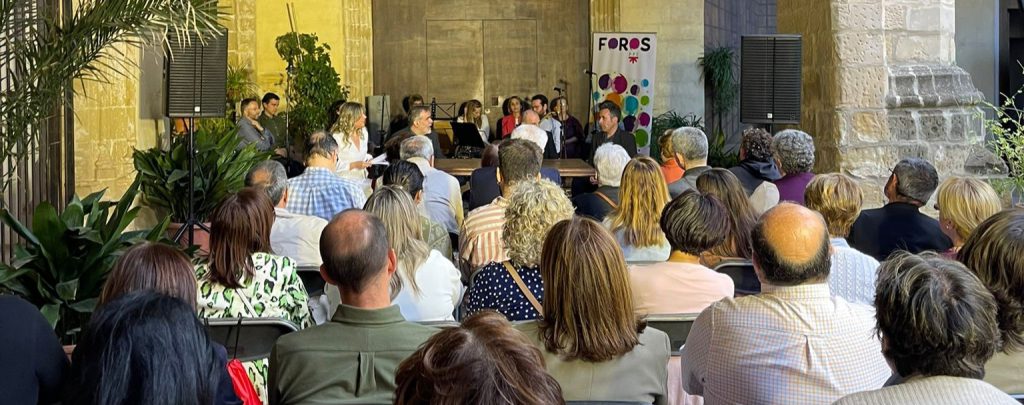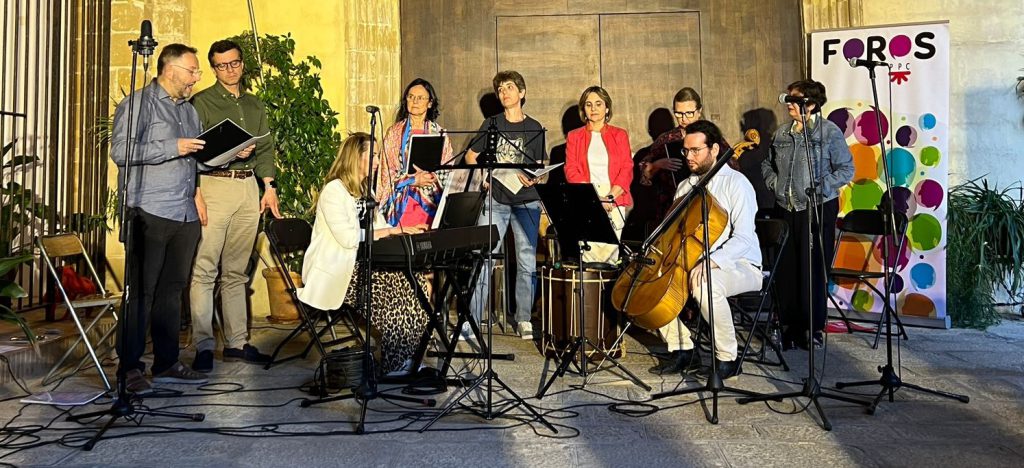The PPC publishing house and the Diocese of Jaén celebrate a Spirituality Forum in Baeza


Yesterday afternoon, June 19, the PPC publishing house and the Diocese of Jaén held the forum ‘Spirituality in everyday life’, with the aim of “explore the beauty and depth of spiritual life in the simplest and most ordinary moments of our existence”.
The Spirituality Forum, which hosted the cloister of the cathedral of the Nativity of Our Lady, in Baezawas moderated by Maria Dolores Ocañamedia delegate of the Bishopric of Jaén, and included the testimonies of Fernando MillanCarmelite religious and director of the Institute of Spirituality of the Comillas Pontifical University; Jesus Montielwriter and poet; and Luis Maria Salazarpriest from Jaen and professor at the Faculty of Theology at Loyola University in Granada.

Music, very present
After the welcome song by the ‘Llama de Amor Viva’ choir, the conference was opened by Francisco Juan Martínez Rojas, dean of the Baeza Cathedralwho took a tour of the artistic and devotional history around the temple and the local believing community, while wishing that they were references “of a strong spirituality and that makes our word meaningful in this postmodern, post-Christian and secularized world.” .
Regarding the fact that we live in a time that is recognized as spiritual but not necessarily religious or believing, Millán recognized the “diversity” present and saw in it “negative and positive” elements. The first correspond to diagnoses that attribute this spirituality to a “narcissistic vision focused on the self instead of on God.” On the other hand, if observed with hope, it is progress that “people seek transcendent meaning.” In short, we are facing an opportunity: “In the face of such a desire for meaning, the world is telling us believers something”.

More the glass than the wine
Montiel turned to his “personal experience,” growing up “in a very conservative environment, where more importance was given to the glass than to the wine, to the container than to the content.” But, “as I have grown, suffered and failed in many ways,” I now give more importance to the wine than to the glass, even knowing that it has to be there so that we can drink from it.” This means that “form, tradition and religion are important and necessary, but the good thing about our time is that people point to wine and are thirsty for a good drink. He is not there to see decorations or flourishes, but he really thirsts for God”.
Since “the human being is always aware of finitude, of death, this spiritual longing is raw”. Therefore, for the poet, “we will not stop being restless and wondering where we are going.”
Image of God
Salazar considered that the fact that “the human being is the image of God” marks us completely: “There is in us a desire that is impossible to completely satisfy, no matter what we achieve in our lives.. And that is what always leads us to go further from ourselves. Before, religion was the channel through which these desires flowed in a natural and effective way. But, with the secularizing process of modernity, that well has dried up in many places.”
Although, nevertheless, the worst thing is that “sometimes mechanisms are sought to extinguish that desire, instead of channeling it. There are spiritual ‘offers’ that, deep down, try to silence that desire. On the other hand, the Christian proposal seeks to increase it and reach the dimensions of the gift that is wanted to be offered to us.
Raúl Rodríguez Castillo, director of PPC Spain, closed the event, together with Pedro Miguel García Fraile, global director of PPC. The first highlighted the importance of colloquiums like this one, which seek to be “pastoral initiatives that help each of us to live deeply and open ourselves to everything we are, without fear of what may happen to us.”
Source: Vida Nueva Magazine





